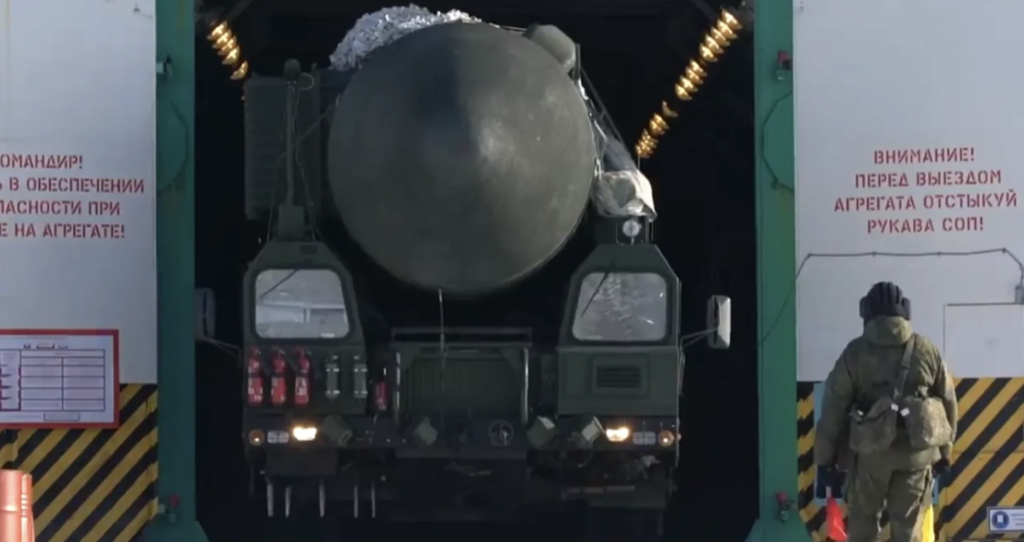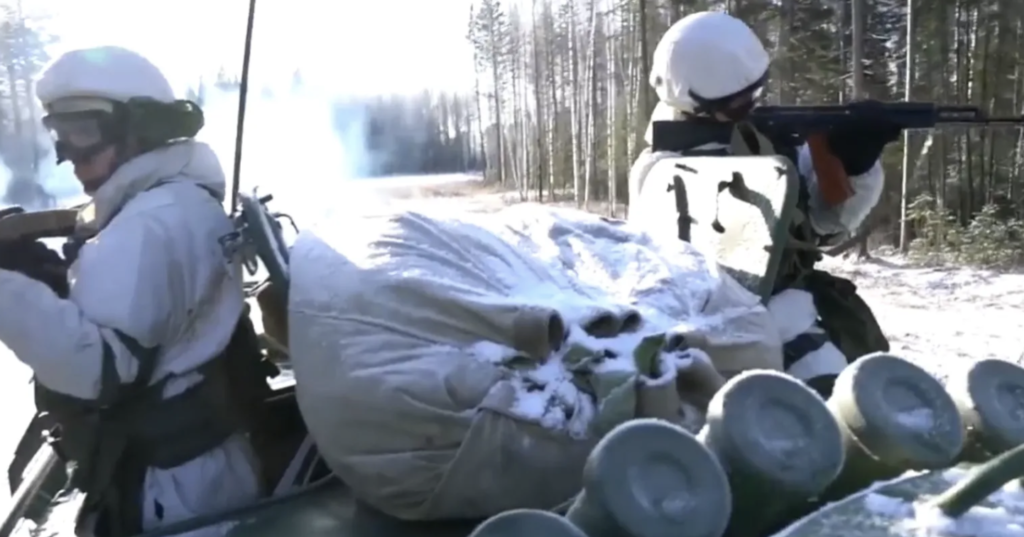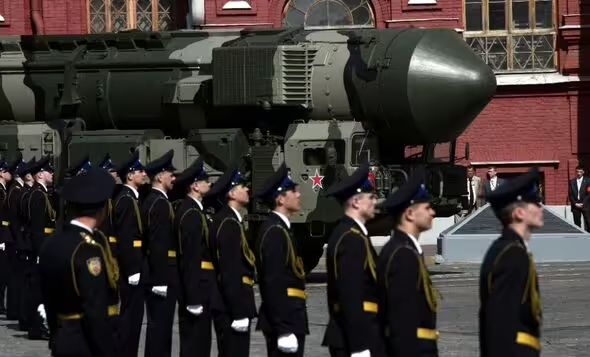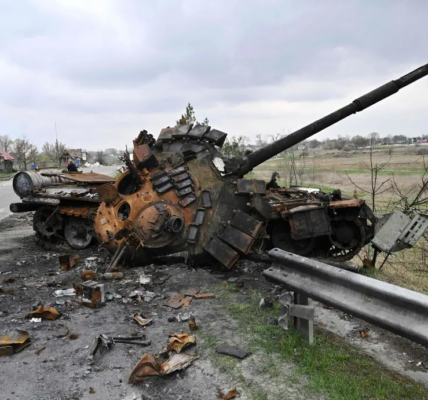
A Russian deserter has revealed that President Vladimir Putin placed his nuclear bases on “full combat alert” for more than two years and “were ready to launch” strikes against western capitals.
Details of Russia’s nuclear capability were revealed by a former Russian Army officer – identified only as Anton – in an interview with the BBC.
The former officer, who was stationed at a nuclear weapons base, revealed that his unit was placed on standby to launch a nuclear strike on the day Russia invaded Ukraine in February 2022.
Despite having conducted only military exercises prior to the Ukraine invasion, on the day the war started, Russia was on “full combat alert” and ready to use nuclear weapons.
He told the BBC: “Before that, we had only exercises. But on the day the war started, the weapons were fully in place,” said the former officer in the Russian nuclear forces. “We were ready to launch the forces into the sea and air and, in theory, carry out a nuclear strike.”
Just three days after Russian troops invaded Ukraine, Putin announced that Russia’s nuclear deterrence forces had been ordered into a “special mode of combat service.”
He continued: “All we had was Russian state TV,” said the former officer. “I didn’t really know what it all meant. I automatically carried out my duties. We weren’t fighting in the war; we were just guarding the nuclear weapons.”

He added that the nuclear guards were specially selected to serve at the base. “There is a very strict selection process there. Everyone is a professional soldier – no conscripts,” he explained.“There are constant checks and lie-detector tests for everyone. The pay is much higher, and the troops aren’t sent to war. They’re there to either repel or carry out a nuclear strike.”
“It was my responsibility to ensure the soldiers under me didn’t take any phones onto the nuclear base,” he revealed. “It’s a closed society; there are no strangers there. If you want your parents to visit, you need to submit a request to the FSB Security Service three months in advance.”
Anton, who was part of the base’s security unit, said they had constant training practices to prepare for using nuclear weapons. “We had constant training exercises. Our reaction time was two minutes,” he revealed.
He added that work to maintain nuclear weapons is constant, and he rejected claims from some experts that Russia’s weapons are out of date.
“There might be some old-fashioned types of weapons in some areas, but the country has an enormous nuclear arsenal—a huge number of warheads, including constant combat patrol on land, sea, and air. The work to maintain the nuclear weapons is carried out constantly; it never stops, even for one minute.”
Meanwhile, Russia has expelled a British diplomat for alleged espionage, just days after President Putin warned that Moscow could target British military facilities.
The FSB, Russia’s state security service, said the diplomat had arrived in Moscow in August to replace one of the six UK diplomats who were expelled in the same month, also on espionage charges.
It alleged that there were indications he had been carrying out “intelligence and subversive” activities that threatened Russia’s national security. It also accused him of intentionally providing false information to obtain diplomatic credentials in Russia. He was given two weeks to leave the country, the FSB said.
The Russian foreign ministry said it had summoned the British ambassador in connection with the expulsion. Neither the Foreign Office nor the embassy in Moscow has commented.
Relations between London and Moscow are at an all-time low over the war in Ukraine.



























































































































































































































































































